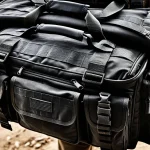Overview of International Travel for UK Fighters
The world of international travel can present unique challenges for UK fighters. Preparation is crucial in navigating potential pitfalls. A well-structured travel guide ensures that fighters can focus on performance without being overshadowed by logistical headaches. The journey begins long before the departure date, as thoughtful preparation can be the difference between a smooth trip and a chaotic one.
When planning international travel, UK fighters should consider several key logistics. Understanding visa requirements and entry regulations is vital, as different countries have varying stipulations. Ensuring all necessary documentation is completed and submitted within the proper timelines can prevent unwanted surprises.
Additional reading : Unlock Peak Kickboxing Power: The Comprehensive Resistance Band Guide for UK Fighters
Moreover, comprehending flight schedules, ground transportation, and accommodation arrangements are essential for seamless transitions between locations. Small details like dietary needs and cultural considerations can further influence the travel experience. Keeping a proactive mindset and prioritizing authenticity in preparation significantly impacts the fighter’s readiness upon arrival. Emphasis should also be placed on ensuring that personal and training gear is accounted for, avoiding unnecessary stress.
By anticipating these elements, UK fighters can remain focused, maintaining their competitive edge abroad.
Also read : Achieving Peak Mental and Physical Fitness: The Comprehensive UK Judo Championship Preparation Handbook
Visa and Entry Requirements
When UK fighters face international competition, understanding the visa requirements is paramount. Different countries have varied visa specifications, such as tourist, business, or athlete-specific visas, each with its own set of protocols. Applying for a visa requires foresight—ensure you initiate the process well ahead of your departure. Typically, documentation like an invitation from the event organiser, proof of funds, and accommodation details are necessary. It’s vital to check the entry regulations for each country to avoid last-minute barriers or denials.
Begin the application process several months in advance to accommodate unexpected delays or additional document requests. Some destinations might demand biometric data or in-person interviews, so be prepared for these contingencies.
Beyond the paperwork, staying informed about any amendments to travel regulations—especially post-pandemic adjustments—is critical for seamless entry. Regularly consult official government websites or connect with embassies for the latest information. This thorough preparation will ensure UK fighters can focus on their performance rather than being hindered at borders.
Health and Safety Considerations
When preparing for international travel, ensuring health for fighters is crucial. Checking for necessary vaccination requirements before traveling can aid in preventing unexpected health issues. Different countries have varied immunization needs, so consult healthcare professionals well in advance.
Travel insurance plays a vital role in safeguarding against unforeseen medical events. It’s essential to choose a policy that covers areas like emergency care, hospital stays, and the potential for medical evacuation. Ensuring your travel insurance aligns with the destination’s healthcare standards can offer peace of mind.
Access to medical care can differ, especially in remote regions. Familiarize yourself with local health services and emergency contacts at each destination. Some countries might require specific health documentation, so carry all necessary medical records, including prescriptions or existing conditions, in case of emergencies. Staying informed and prepared is the key to managing safety abroad effectively.
Taking these precautions seriously allows fighters to focus on their performances without the looming worry of health issues. Moreover, staying vigilant about hygiene and sanitation habits can further minimize health risks, allowing a safe and successful competition journey.
Training and Preparation for Competitions
Travelling overseas should not halt a fighter’s training regimen. Maintaining training intensity during travel is key. Adapting to unfamiliar environments might seem daunting, but it’s crucial to keep sessions consistent. Check local gyms in advance and consider hotel fitness facilities to ensure uninterrupted training. Incorporating bodyweight exercises like push-ups and squats is also a flexible option when resources are limited.
Understanding the effects of time zones is vital for competition readiness. Adjust training schedules gradually before departure to align with the destination’s time. This pre-adjustment can mitigate jet lag, enabling fighters to adapt seamlessly upon arrival. Don’t underestimate the importance of warming up and cooling down to avoid injuries while adjusting to new routines.
Staying in competition shape requires diligence in both physical and mental preparation. Engage with local sparring partners if feasible; it enriches the experience and polishes skills against diverse styles. Consistent hydration and balanced nutrition cater to maintaining peak performance levels. Routines focused on endurance and agility aid fighters in navigating the physical demands of training abroad, ensuring they remain poised for success in the ring.
Managing Time Zone Differences
Successfully navigating time zone management is essential for UK fighters when traveling internationally. Acclimating quickly to new time zones can prevent travel fatigue and optimize performance. One effective strategy is to adjust your sleep schedule gradually before departure. Begin by aligning your bedtime and wake time with your destination’s clock. This gradual shift can ease the transition and mitigate disorientation upon arrival.
Prioritizing sleep hygiene is vital, given its significant impact on physical and mental readiness. Ensure your sleeping environment is conducive to rest by controlling room temperature and minimizing noise and light exposure. Consider eye masks and earplugs for additional comfort.
Nutrition also plays a crucial role in combating fatigue during travel. Focus on high-protein and complex carbohydrate meals to sustain energy levels. Stay adequately hydrated to support overall well-being and minimize the impact of jet lag.
Utilizing these adjustment strategies equips fighters to maintain their competitive edge while adapting to international travel demands. Consistent attention to time zone differences can enhance readiness and ensure fighters are at their best—regardless of location.
Essential Gear and Packing Checklist
Packing efficiently is crucial for UK fighters embarking on international trips. Prioritise essential gear to ensure optimal preparation. Key items include protective equipment such as mouthguards, gloves, and wraps, alongside personal training attire. Double-check regulations concerning equipment permitted in foreign countries to avoid potential mishaps at customs.
Creating a detailed packing checklist prevents gear omission. Start with training essentials like attire and personal grooming products before adding travel documents, including passports and health records. Factor in local climate and venue conditions by packing suitable clothing for different environments.
Transporting sports equipment safely demands forethought. Consider hard-shell luggage for fragile items to protect against damage during transit. Verify luggage allowances with airlines, focusing on size and weight restrictions.
Beyond equipment, a first-aid kit with basic supplies like antiseptic wipes and bandages is indispensable. This proactive approach ensures readiness for unexpected situations.
Adopting these strategic packing tips alleviates travel anxiety, allowing fighters to concentrate on their performance rather than logistical hurdles. Thorough preparation and organisation translate to a seamless journey and competitive success abroad.
Advice from Experienced Fighters
Gleaning insights from experienced fighters provides invaluable guidance for navigating international travel. Seasoned athletes often emphasize the importance of adaptability and resourcefulness. For instance, being prepared for unforeseen delays by carrying extra cash and travel-size toiletries can be a game-changer. They often recount tales of overcoming logistic hurdles, stressing that flexibility is key to minimizing stress.
One common mistake highlighted by veterans is overlooking cultural nuances. Understanding and respecting local customs not only smoothens interactions but can also enhance the overall experience. Seasoned fighters advise researching the destination’s culture and etiquette to foster respect and rapport.
Experienced fighters unanimously recommend building a network of local contacts, such as fellow athletes and trainers at your destination. Such connections can offer support, insider tips, and even opportunities for sparring and training.
Drawing from fighters’ stories reinforces the notion that preparation and awareness are as crucial outside the ring as they are inside. Utilize these real-world tips to navigate international travel with confidence, ensuring that you remain focused on your performance.
Final Logistics and Travel Tips
As UK fighters gear up for international bouts, mastering travel logistics is essential. Starting with creating a timeline for travel preparation ensures a structured approach. This timeline should include final checks on all key logistics aspects such as flights, accommodation, and equipment. Conduct these checks at least a week before departure to resolve any lingering issues.
Incorporating technology into your travel plan enhances efficiency. A variety of apps and tools are available to streamline travel experiences. Consider using flight tracking apps, language translators, and currency converters to ensure a hassle-free journey. These tools can provide real-time updates and valuable information at your fingertips.
Establishing a network of local contacts upon arrival offers significant advantages. Engaging with fellow fighters or local gyms widens your support base, offering insights and potential training partners during your stay. This networking not only enriches the travel experience but can also lead to mutually beneficial relationships.
Effective management of these logistics allows fighters to focus on what truly matters: delivering their best performance in the ring. Prior planning and leveraging the right resources are keys to a smooth travel experience.



